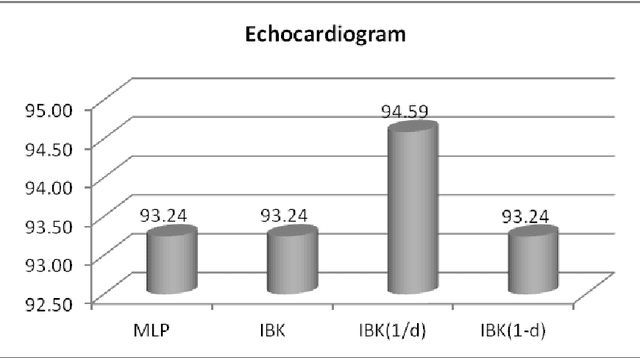Comparative Study of Instance Based Learning and Back Propagation for Classification Problems
Paper and Code
Apr 19, 2016



The paper presents a comparative study of the performance of Back Propagation and Instance Based Learning Algorithm for classification tasks. The study is carried out by a series of experiments will all possible combinations of parameter values for the algorithms under evaluation. The algorithm's classification accuracy is compared over a range of datasets and measurements like Cross Validation, Kappa Statistics, Root Mean Squared Value and True Positive vs False Positive rate have been used to evaluate their performance. Along with performance comparison, techniques of handling missing values have also been compared that include Mean or Mode replacement and Multiple Imputation. The results showed that parameter adjustment plays vital role in improving an algorithm's accuracy and therefore, Back Propagation has shown better results as compared to Instance Based Learning. Furthermore, the problem of missing values was better handled by Multiple imputation method, however, not suitable for less amount of data.
 Add to Chrome
Add to Chrome Add to Firefox
Add to Firefox Add to Edge
Add to Edge